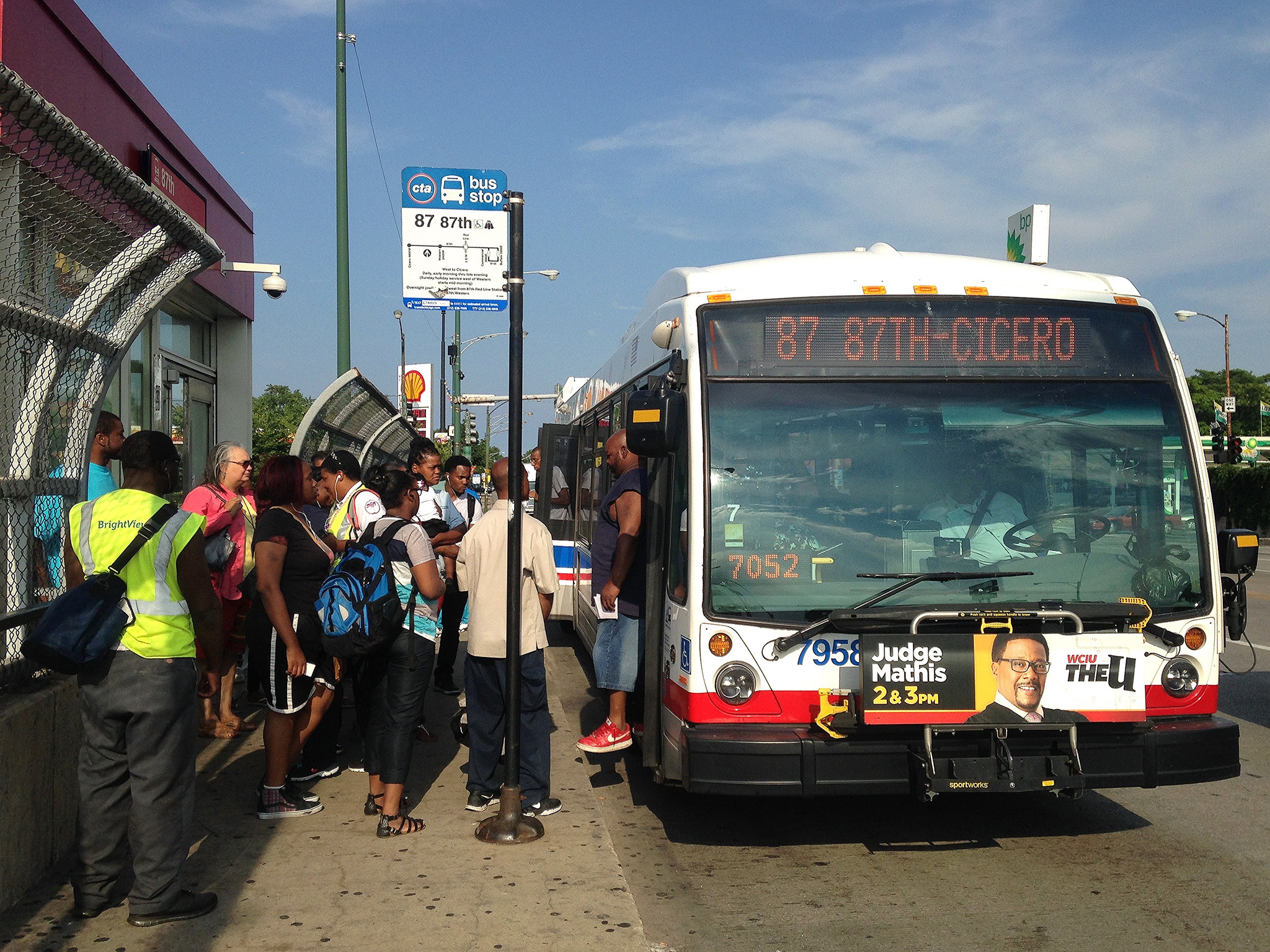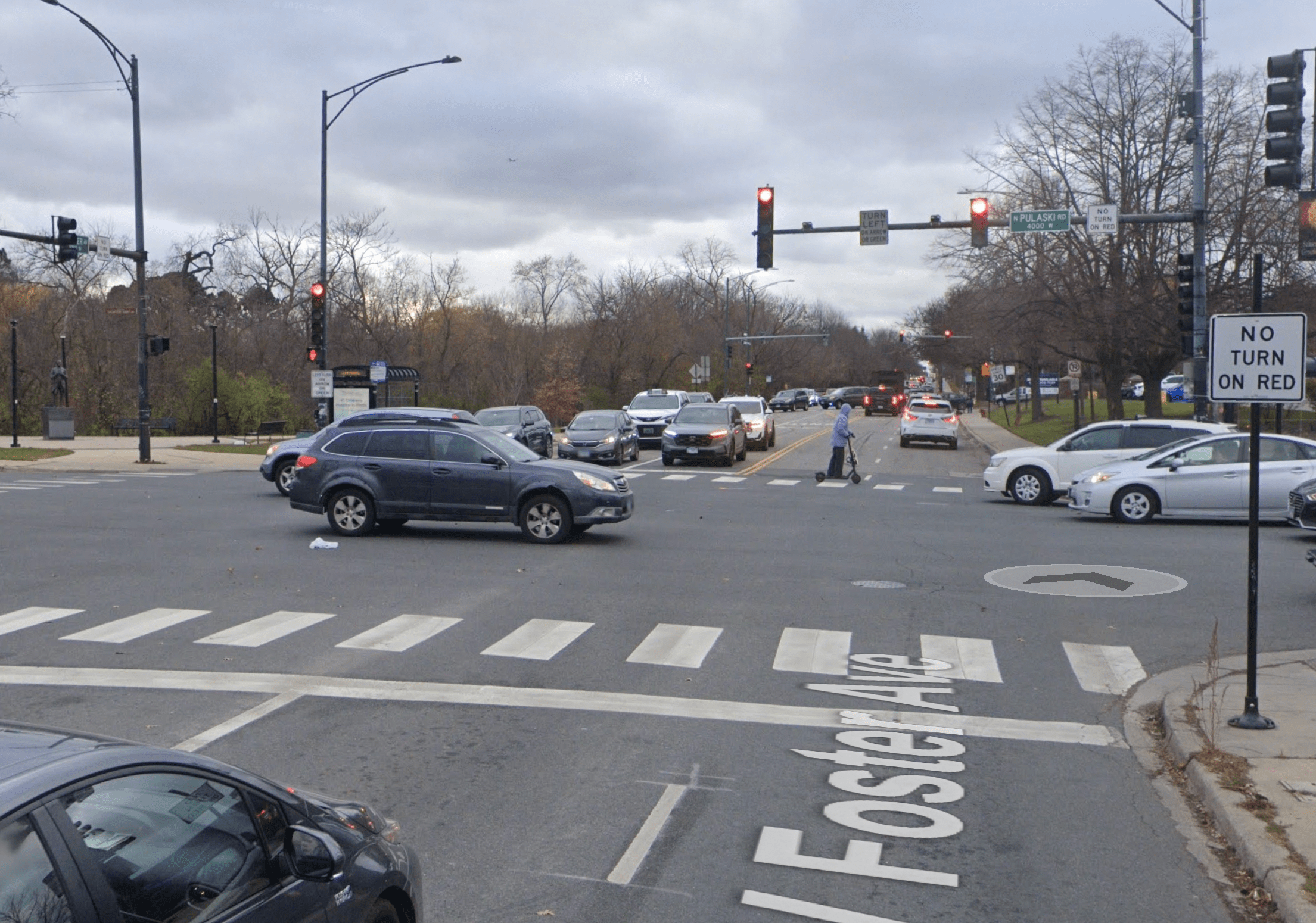Since Chicago mayor Rahm Emanuel announced in September that he's not not seeking reelection, advocates working on a variety of issues, including transportation, see the changing of the guard as an chance to help shape the next administration's priorities.
Last week the Active Transportation Alliance released the Active Transportation Agenda for Chicago, which describes how Chicago's next mayor and the City Council can support policies and projects over the next four years that better connect all residents to jobs, schools, parks, healthcare, and other daily destinations.
The agenda was compiled based on feedback from more than 35 community, civic, and advocacy organizations that work on issues that touch on the agenda’s mission of healthier, more sustainable, and more equitable communities. Active Trans also hosted two public engagement events at the Chicago Urban League in Bronzeville and St. Berchman’s Parish in Logan Square.
In addition to the agenda, a group of 14 community-based organizations joined Active Trans in sending a letter to candidates for mayor and alderman urging them to support three top priorities from the agenda.
- Dedicate $20 million from the city budget annually for a Bike Walk Fund
- Establish a 50-percent discounted CTA, Metra and Pace transit fare for low-income residents below the federal poverty line (about $30,000 income annually for a family of 4)
- Develop an equity framework for transportation and infrastructure in Chicago, based on input from a working group of community leaders, advocates, agency staff and elected officials.
Letter signers included the Garfield Park Community Council, Greater Roseland Chamber of Commerce, Northwest Side Housing Center, Southwest Organizing Project, among several other groups.
If elected officials commit to these these priorities, they could help pave the way for a more equitable transportation system. For example, if the city created a special fund for biking and walking projects, which Active Trans says should be focused on underserved communities, it would help supplement the ward menu funds that are currently used for these initiatives. Since most of Chicago's ward-funded bike and pedestrian projects have taken place in relatively wealthy neighborhoods, having another funding source would allow more safety infrastructure to be built on the South and West sides.
Establishing a discounted transit fare for low-income Chicagoans will also bring us closer to bridging the equity gap in our city. While public transportation helps people access jobs, education, and services, the cost of riding buses and trains can add up to a significant financial barrier for many residents. It shouldn't be a burden to get around your city. Equitable movement is part of envisioning an equitable city.
Other notable goals from the agenda for the next four years include include:
- Reduce pedestrian and bicyclist fatalities and serious injuries by 50 percent with a focus on the city’s highest crash corridors in low-income communities and communities of color
- Increase access to high-quality, low stress bikeways so two-thirds of Chicagoans live within one-quarter mile of a protected bike lane, neighborhood greenway or urban trail.
- Fund and construct at least three rails-to-trails projects, including the planned Englewood Line, Paseo Trail in Pilsen, and Weber Spur Trail on the Northwest Side, while proactively implementing policies to prevent the displacement of current residents.
- Update police policies to prioritize enforcement of the most dangerous driving behaviors and stop using traffic enforcement as a guise to unfairly investigate vulnerable segments of the population; integrate restorative justice practices into traffic enforcement.
It's worth noting that that the agenda points very clearly state the need to prioritize the lived experiences of residents in low-income, communities of color as well as to be attentive to displacement pressures. Some examples cited in the document include the Chicago Police Department's practice of writing high numbers of bike tickets in majority-Black neighborhoods (the CPD has admitted this is done as a strategy to conduct searches), and the displacement concerns along the future El Paseo Trail corridor.
In an equitable transportation system, people can ride their bikes without being afraid of being unfairly targeted for tickets, and they don't have to worry about whether a new trail will result in higher housing costs that will force them from their homes. When we openly address the social justice issues that intersect with transportation issues, we can better understand how to bridge Chicago's larger equity gaps.
To spread the word about the agenda, Active Trans is currently meeting with mayoral candidates to discuss these ideas, and later this month Active Transportaton NOW – an affiliated 501(c)4 organization – will be sending a questionnaire about transportation issues to all candidates for mayor and alderman. The group will analyze the responses and public them prior to the Thursday, February 26 election.
![]()
Did you appreciate this post? Consider making a donation through our PublicGood site.




